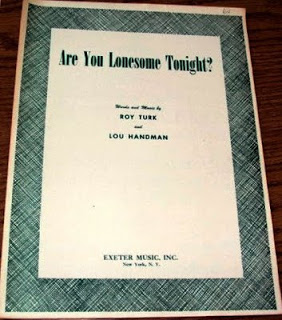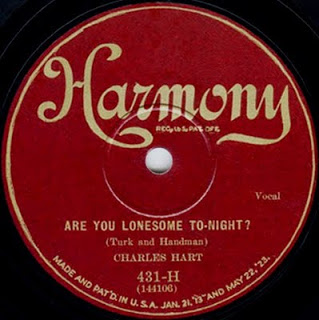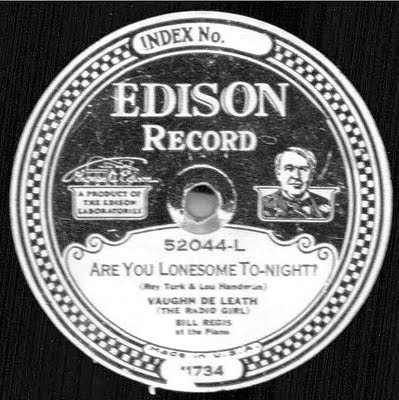Certain songs give me a creepy feeling when I hear them because something in the lyrics reminds me that the singer has passed away. This happens when I hear Buddy Holly singing, “That’ll be the day that I die.” The same feeling comes over me when I hear Otis Redding sing, “I’ve had nothing to live for” in his last recording, (Sitting On) The Dock Of The Bay. It happens when I hear Sam Cooke sing, “It’s been too hard living, but I’m afraid to die” in his version of A Change Is Gonna Come. Jimi Hendrix delivers some pretty spooky lyrics in I Don’t Live Today when he sings, “Will I live tomorrow? Well, I just can’t say. I know for sure I don’t live today.” Even though his accident wasn’t fatal, it still creeps me out to hear Jan And Dean sing their prophetic hit, Dead Man’s Curve. And I don’t care what John Lennon says, I can clearly hear him saying “I buried Paul” at the end of Strawberry Fields Forever, and not the words “cranberry sauce” as he later claimed.
I could go on and on with references like this, but this post is all about what happens whenever I listen to Elvis Presley singing Are You Lonesome Tonight. “Is your heart filled with pain? Shall I come back again?” I know, it’s a bit of a stretch, but it’s a question that always makes me want to shout out, “YES! Elvis, for God’s sake, please come back!” By the way, I’m NOT one of “those people” who claims to see Elvis buying cigarettes and lottery tickets every night somewhere in lower Michigan.
Now, let’s take another little trip down musical memory lane. You may already know that Elvis wasn’t the first person to sing Are You Lonesome Tonight. The song was actually written in 1926 by Roy Turk and Lou Handman.
Lou Handman was born in New York City in 1894. He toured in vaudeville and played piano for soldiers during World War I. He then hit Tin Pan Alley where he became a song plugger for Irving Berlin and an accompanist to vaudeville star Marion Harris. Shortly afterward, he started writing his own songs which would become some of the most important hits of his time. Are You Lonesome Tonight became his biggest hit. In 1930, Handman and his wife, fellow vaudeville star Florrie Le Vere, moved to Hollywood to write music for Universal Studios and Republic Pictures. He worked on movies like All Quiet On The Western Front, A Star Is Born, and The Hit Parade. He died in 1956. He was posthumously inducted into the Songwriter’s Hall Of Fame in 1975. This is a photo of Lou Handman (center) with his sister Edythe (left) and his wife Florrie (right).
Rumor has it that the song may have been first recorded on 18 June 1926 by Bob Haring and his Cameo Dance Orchestra, but no copies of that disc (Cameo 967) have ever been located. Bob Haring was a bandleader who recorded under several different aliases, such as the Caroliners, the Lincoln Dance Orchestra, the Society Night Club Orchestra, and the Colonial Club Orchestra. He also also appeared as Bob Haring And His Velvetone Orchestra. He wasn’t the only bandleader doing things like this back in the 1920’s. They did it to get around recording contract restrictions. This allowed them to release material on a different label without breaking their exclusive contract. In fact, the labels themselves often asked bandleaders to record cover versions under an assumed name which they issued on subsidiary labels in order to generate competition. A lot of this was necessary because large chain stores often negotiated a monopoly on the sale of certain labels. Bob’s son, Bob Haring Jr., became a music librarian who probably spent a lot of time tracking down the various recordings done by his father! If this disc does exist, it would be a highly-prized find for record collectors. If you know I can lay my hands on a copy of Cameo 967, please contact me immediately!
The song was actually recorded first on 8 May 1927 by Ned Jakobs, but his version was not released until 17 May 1927 on Brunswick 3561. That means that the first time it appeared on a record was 9 May 1927 by Charles Hart on Harmony 431. He may have also released this on Victor 18467. I do not have a copy of the Charles Hart version and I can’t find one anywhere, so I think it must be pretty rare. If you have a copy of the record or an audio file you’d be willing to send me, I’d really love to hear from you!
The hit version, which rose to number four on the sales charts, was sung by “The Radio Girl” Vaughn de Leath on 13 June 1927 on Edison 52044. The Edison discs spun at 80 RPM and were laterally recorded, which meant they could only be played properly on an Edison talking machine.
There were several other versions released in 1927 as well.
On 27 June 1927, the original composer, Lou Handman, released his own version. He played piano while the vocals were sung by his sister Edythe Handman on Gennett 6186. This is another version I have yet to hear, so please contact me if you have the record or audio file.
On 22 July 1927, Little Jack Little recorded a version that was released on Columbia 1173 in August 1927.
On 5 August 1927, the famed tenor Henry Burr released yet another version of the song on Victor 20873.
On 1 September 1927, Vaughn de Leath re-did the song again, this time backed by the Colonial Club Orchestra.
In October 1927 it was released by Elliott Stewart on Gennett 6297 (many sources incorrectly list him as Stewart Elliott). He was an actor who appeared on Broadway in 1924 in a musical production of Madame Pompadour. It appears he also recorded the song as Harlow Lashley on Champion 15371 in that same month, which is the version I have in my collection.
It was also done by Lew White on Brunswick 3672, and also by the Newport Society Orchestra also released a version of the song on Harmony 511, both in 1927.
Many a crooner would follow with a straight cover of the song through the years. Some performers, however, adapted the song to their genre. For example, the Carter Family, pioneers of country music who went on to produce June Carter (wife of Johnny Cash) and Anita Carter, recorded a bluegrass version in 1935 which was musically and lyrically quite different from the original.
The song enjoyed a revival in the 1950s, being redone first by Al Jolson on Decca 6262. He ends the spoken part with the sentence “…in the part of a broken clown”. Elvis changed this to “with emptiness all around”.
The arrangement used in Elvis Presley’s version is based on the 1950 recording of Are You Lonesome Tonight by the Blue Barron Orchestra on MGM 10628. The Blue Barron was born Hershel Freidland on 19 November 1913 in Cleveland, Ohio.
Elvis Presley’s manager, “Colonel” Tom Parker, persuaded The King to sing this old standard because it was one of his wife’s favorite songs. Mrs Marie Parker liked the 1940’s version by country star Gene Austin, and also the 1959 remake by Jaye P Morgan.
The spoken part is loosely based on a play by William Shakespeare. It’s from a speech given by the character Jacques in As You Like It, Act II Scene VII where he recites, “All the world’s a stage, and all men and women merely players; they have their exits and their entrances; and one man in his time plays many parts.”
While appearing at the International Hotel in Las Vegas in 1969, and while no doubt overdosed with amphetamines, Elvis Presley started cracking up after hearing the high-pitched voice of backing singer Cissy Houston (Whitney Houston’s mother). Elvis would sometimes mess around with the lyrics while doing his hits on stage. In this instance, he spotted a bald man in the audience and the words, “Do you gaze at your doorstep and picture me there” turned into, “Do you gaze at your bald head and wish you had hair!” This set Elvis off into a fit of laughter, while the band and backing singer just kept going as if everything was normal. The “Laughing Version” was issued by RCA several years later on the Live At The International Hotel album.
Except as I’ve noted above, you’ll hear all these versions of Are You Lonesome Tonight, along with many others, on MusicMaster Oldies. You’ll also hear “answer” songs, parodies, and live versions as well, including the infamous “laughing” version Elvis did, along with another one by him where he sounds totally loaded and really destroys the lyrics!
And now, recorded from MY copy of Vaughn de Leath’s original hit version on the thick Edison record, here’s Are You Lonesome To-Night by The Radio Girl:
Most people know that Al Jolson had a legendary voice. Here’s his take on the song:
The Blue Barron version is the one Elvis probably copied:
The Colonel’s wife probably liked this one from 1949 by Jaye P Morgan:
And here’s that Bluegrass version from 1935 by the Carter Family!




